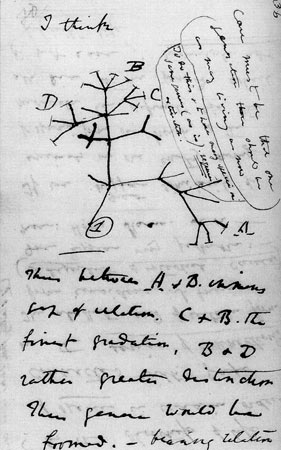Jung defines Te as something like "empiricism" (what is true is what is perceived by the senses):
And Ti as something like Kantian "rationalism" (what is true is what is rational or logical):1. Thinking
As a result of the general attitude of extraversion, thinking is orientated by the object and objective data. This orientation of thinking produces a noticeable peculiarity.
Thinking in general is fed from two sources, firstly from subjective and in the last resort unconscious roots, and secondly from objective data transmitted through sense perceptions.
Extraverted thinking is conditioned in a larger measure by these latter factors than by the former.
http://psychclassics.yorku.ca/Jung/types.htm2. The Introverted Thinking Type
Just as Darwin might possibly represent the normal extraverted thinking type, so we might point to Kant as a counter-example of the normal introverted thinking type. The former speaks with facts; the latter appeals to the subjective factor. Darwin ranges over the wide fields of objective facts, while Kant restricts himself to a critique of knowledge in general. But suppose a Cuvier be contrasted with a Nietzsche: the antithesis becomes even sharper.
But they're both fairly old 18th and 19th century philosophies, and we now know that they're both wrong and are false philosophies.
"Empiricism" isn't actually objective in that our sensory perceptions are subjective experiences. For example, the whole yanny/laurel debate is kind of a metaphor for the subjectivity of our own perceptions. Also unlike what Jung imagined, there's no such thing as "pure" objective and external data that is untainted by our own subjectivity, our own theorizing and our pre-conceptions that we have about the world. All observation is theory-laden.
So "rationalism" is a criticism of empiricism of sorts. It says that there's no way that we can have an untainted, pure and unadulterated experience of the world. So it's not that we wait for the nature to reveal her laws and impressions onto us, and we are merely blank canvases to have nature write her knowledge on us, but rather we impose our own laws and expectations onto the nature. And knowledge is "supported" or "justified" by the fact that it's rational and logical. This is what Kant called as the "Copernican revolution (in philosophy)".
This is all good and all, but rationalism was also false, or at least, it was limited. While we know that when something is inconsistent or incoherent, then it is false, but there's also no way to know that something is true, just because it's consistent and coherent. A beautifully logically consistent system or a theory can still be wrong. There was the danger of arbitrary nature of logic. And hence, there's no way to say that something is "true", just because it's rational and logical. Same for having no ability to say that something is "true", just because it's something that we have observed.
So the logical progression to this was critical rationalism. Critical rationalism turns this all around on its head, and uses rationalism to criticize a theory, and not support a theory. It uses empirical evidence to criticize a theory, and hence it gets falsified by observations, and not support it. We can never know what is "true", because there is no such thing. And hence we can't ever "justify" a theory.
I should also say, that both empiricism and rationalism were both reactions to the arbitrary authority of kings and Holy books. It dared to say, "I'm the authority of my own knowledge! Not anybody else!". This was good and all and it sparked a revolution of thought and how we acquire knowledge. But it only meant that it moved the arbitrary authority of kings and Holy books to the arbitrary authority of sensory perceptions and arbitrary logic. So both empiricism and rationalism were limited. It required a new way of thinking, which turns its head around on itself and say that there's no such "authority" of anything.
So all in all, Jung was simply a victim of the times, when empiricism was still fashionable and was the default epistemology for deciding what is true and objective in the late 19th and early 20th century. But the world has since then largely moved on from that, even though the mainstream culture is still lagging behind. One way for the scientists to know what is objective, is to simply perform a reproducible experiment. When the scientists can reproduce the experiment themselves, then they know that it's objective. Not "sources" or "facts".



 Reply With Quote
Reply With Quote

